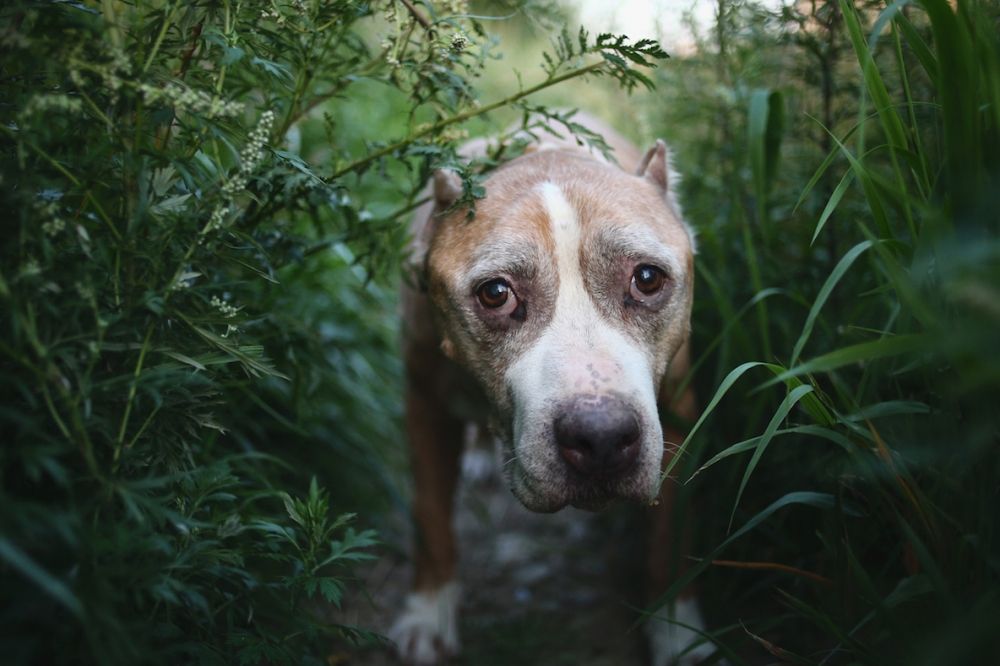

Dogs Surrendered as Misinformation Surrounds COVID-19
Unwarranted fears that caninescan spread Covid-19 are causing people to surrender their dogs, despite the World Health Organization (WHO) concluding that the threat of transmission from dogs to humans is virtually nonexistent.
The global pandemic of COVID-19 has infected hundreds of thousands of people around the world and has caused thousands of deaths. However, it is not just humans who are impacted by the spread of the virus, but also pet dogs. It is not because the dogs are susceptible to the virus, or that there is any evidence that they can transmit it, but simply because people are afraid and they are acting irrationally out of panicky concerns for their health. There are reports from a number of animal rescue societies around the world that there has been an uptick in the number of pet dogs that are being surrendered to shelters, or simply abandoned, because people are fearful that their dog may carry, or pass on, the virus. The dogs that are impacted the most seem to be smaller breeds, such as those that might be found in the households of people who live in apartments or condominiums.
The current situation brings to mind another historical example in which animals were blamed for a pandemic, and this caused many thousands of animals to lose their lives. During the 14th century there was an eruption of Bubonic Plague, often referred to as the “Black Death.”The disease was caused by a bacterium that lives in the digestive tracts of fleas. The preferred host for these fleas was rats. Cats had already attracted suspicions from some groups in the Catholic Church for religious reasons. This was because felines are mostly active at night, are often independent, sometimes—like all animals—unpredictable, and, in the case of feral cats, don’t socialize well with people. To top it off, cats are frequently the companions of older, solitary women—who might (because of their gender and lifestyle) be witches, the thinking went. Thus it was an easy transition to the belief that cats might be agents of Satan, and might well be causing the plague. It was a scary time, and since there was no known cure, and little was known about how to avoid the disease, people found psychological comfort in finding something tangible to blame, and something to take action against.
"After thousands of tests, they reported on March 13, 2020 that they have seen no positive results in pets for the coronavirus strain responsible for the COVID-19 respiratory outbreak in humans."
Sadly, this hysteric and uninformed belief led to a vendetta against cats, and many cats were killed. But as the number of cats decreased, the number of rats increased, which contributed to the spread of the plague. Since killing the cats wasn't stopping the pandemic, the frightened population felt that co-conspirators must be involved, and hence dogs were also soon singled out, and many were exterminated. When that didn't stop the plague other suspects, such as Jews and gypsies, were sought out and killed as well. Eventually it was noticed that families who persisted in keeping cats actually had lower rates of infection, and slowly the fear of cats began to be reversed and their extermination ceased. An increased population of cats ultimately helped to curb the spread of the disease.
One might think that in our enlightened age in which we depend upon science, rather than simply fear and superstitious beliefs, we would not immediately blame our domestic animals for our human health problems. However, in February 2020, the Hong Kong Agriculture, Fisheries, and Conservation Department reported on a case of a pet dog testing “weak positive” to the COVID-19 virus. The dog was owned by a 60-year-old woman who had contracted the viral disease, but who ultimately recovered. The dog was quite elderly, a 17-year-old Pomeranian who was suffering from other underlying illnesses as well. The dog showed none of the overt symptoms of the disease, and after a two-week quarantine, which ended after two successive tests showed no evidence of the virus, the dog was released back to her owner.
Because of the fact that there was no evidence that the dog had actually developed antibodies to COVID-19, some experts have questioned whether there is enough evidence to say that the dog actually had contracted the disease. Several veterinary experts contended that the test used in Hong Kong would be unable to detect whether the dog had the virus or if it had simply licked contaminated surfaces in the home. Nonetheless, reports of this single case went viral and the panic associating dogs with the spread of this coronavirus went global.
What does the data actually say? Well the best evidence so far comes from IDEXX Reference Laboratories, which is a global network of more than 80 laboratories.IDEXX evaluated thousands of canine and feline specimens during validation of a new veterinary test system for the COVID-19 virus. The specimens used for test development and validation were obtained from specimens submitted to them for PCR testing (which looks for fragments of the specific RNA associated with the virus). After thousands of tests they reported on March 13, 2020, that they have seen no positive results in pets for the coronavirus strain responsible for the Covid-19 respiratory outbreak in humans.
Based on this evidence, and results from other sources, the Center for Disease Control (CDC), World Health Organization (WHO), American Veterinary Medical Association (AVMA), and the British Veterinary Association (BVA) have all concluded that the threat of transmission from dogs to humans is virtually nonexistent. Several representatives of these organizations have commented that the trend toward people abandoning their pets because of fear of the virus is unwarranted. In their most recent update on the matter (March 16, 2020) the AVMA notes that simple precautions are all that seem to be necessary. In the case where an individual in the household is infected, making sure that there is no sharing of towels, utensils or bedding between pets and the infected person (or other people in the home) should be sufficient.
Still, as in the case of the Black Plague, people find comfort and a means of allaying their own fears by finding a scapegoat, and pet dogs are a visible and easily accessed target. This is most obvious in China where a notice from city officials in Hongjiang, in Hunan Province, indicates that pets in public areas and unattended animals would be killed without exception. In another county, Zheniang, authorities warned that dogs which are found in public would be exterminated.
Faced with this panic around the globe, some dog owners are surrendering their dogs to shelters, while others quarantine their pets in the house, waiting for the time that the "all clear" maybe sounded. Meanwhile, a small new industry has appeared to supply tiny facemasks for dogs. All of this despite the assurances of the major medical, veterinary, and scientific agencies.
Join the newsletter and never miss out on dog content again!
"*" indicates required fields
By clicking the arrow, you agree to our web Terms of Use and Privacy & Cookie Policy. Easy unsubscribe links are provided in every email.






